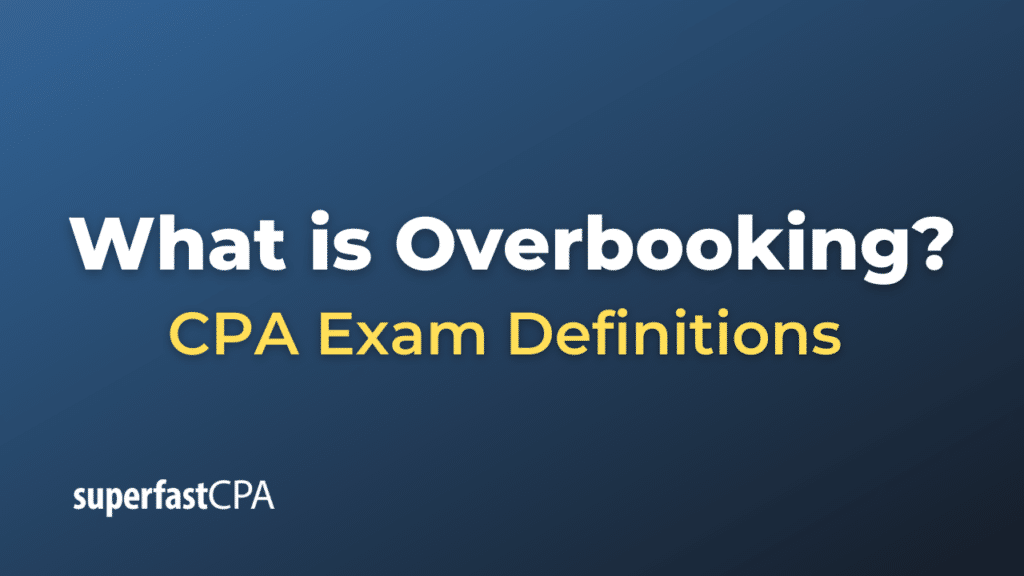Overbooking
Overbooking is a common practice in various service industries, such as airlines, hotels, and restaurants, where more customers are booked for a service than can actually be accommodated.
The rationale behind overbooking is to account for ‘no-shows’ or cancellations – customers who’ve made a booking but do not turn up. Since these industries have a high rate of no-shows and last-minute cancellations, overbooking allows them to maximize their capacity and ensure profitability.
For example, an airline might overbook a flight, selling more tickets than there are seats on the plane, on the assumption that a certain percentage of passengers will miss the flight. If every ticketed passenger actually shows up, the airline would have to deal with the overbooking, often by asking for volunteers to take a later flight in exchange for compensation. If not enough volunteers step forward, the airline may need to involuntarily deny boarding to some passengers.
While overbooking can be beneficial for companies by ensuring full capacity, it can lead to dissatisfaction and inconvenience for customers who are turned away or rescheduled, despite having made reservations. It’s a balancing act for companies to manage their revenue and customer satisfaction.
It’s worth noting that many industries and countries have regulations around how overbooking should be managed and what compensation must be provided to customers who are affected by it.
Example of Overbooking
Let’s say Airline XYZ operates a daily flight from New York to Los Angeles, using an airplane that has 200 seats. Historically, Airline XYZ knows that about 5% of passengers who book tickets for this flight end up not showing up. To account for these “no-shows,” the airline decides to sell 210 tickets for each flight, overbooking by 10 seats.
If everything goes as expected (with a 5% no-show rate), around 10 passengers will not show up, and the flight will depart full with 200 passengers.
But let’s consider a situation where all 210 ticketed passengers do show up. In this case, the airline will need to handle the overbooking. It might start by asking for volunteers to take a later flight, offering incentives like travel vouchers or upgrades.
If not enough people volunteer, the airline may need to involuntarily deny boarding to some passengers. Regulations like the U.S. Department of Transportation’s rules on overbooking require airlines to provide compensation to these passengers, depending on how long the passengers are delayed.
While overbooking can help airlines ensure that they’re operating at full capacity, situations where more passengers show up than expected can lead to negative customer experiences. It’s a risk that airlines have to manage carefully.













